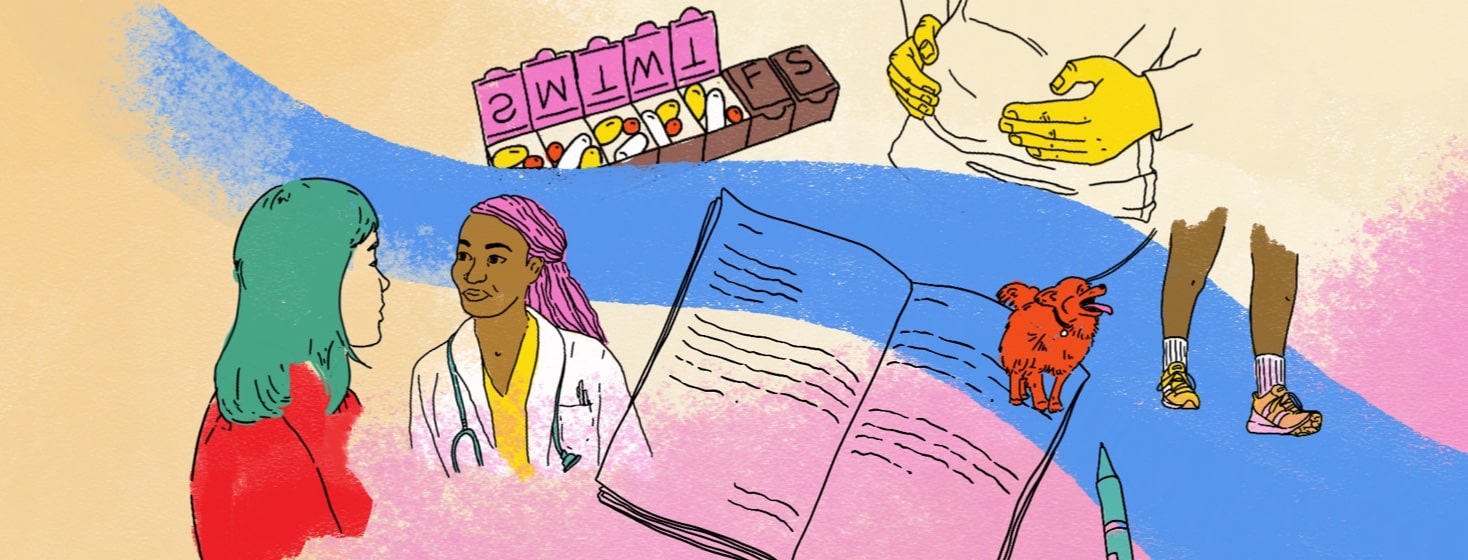How Can You Prepare For Postpartum Depression?
I have lived with depression on and off since my teenage years. Sometimes it was better controlled, other times it was extremely challenging. I'd been on and off medications – trying to find the right prescription at the right dose, working with a psychiatrist and a counselor, identifying my typical triggers.
And yet, there are still times when a depressive episode would sneak up on me. I share this to say that depression impacted my pregnancy.
Talking to my doctor before trying to conceive
Before we even started trying to conceive, my husband and I went over my medical history with a maternal fetal medicine physician to ensure that my medications for both my chronic illness and my mental health were safe and recommended for pregnancy and gave me the option of breastfeeding, if I wanted it.
This is when I also learned that due to the metabolism increasing during pregnancy, my antidepressant might not work as well later in my pregnancy and the dose might need to be increased in order to maintain therapeutic levels.
Open dialogue with my psychiatrist
Then... we tried to get pregnant on our own. For a long time. Finally, we turned to fertility treatments, and even that took nearly a year until I was successfully pregnant.
All of the unknown and frustration and devastation that journey brought up absolutely impacted my mental health, and I met regularly with my psychiatrist to ensure that I remained safe and as grounded as possible using both medication and other tools to manage my depression.
Working with doulas in my third trimester
During the third trimester of my pregnancy, my husband and our doulas sat down and put together (literally wrote out on paper) a step-by-step checklist of what we do if I experienced an increase in my depression after delivering out daughter. Also known as: What if I was diagnosed with postpartum depression?
Now, I recognize that for many of you, you might not have any history of depression, anxiety, or other mental health challenges, and postpartum depression might not be/have been on your radar during or after your pregnancy.
What I'm going to share next I hope is universally helpful for individuals in both camps.
My PPD preparation guide
- If you take mental health medication before pregnancy, talk with your provider about continuing the medication (and any helpful dosage changes) as early in your pregnancy as you can.
- I felt stronger-than-normal emotions in the weeks following childbirth, and talked to my husband and my doula about them. (This obviously comes with the caveat that if your having severely intrusive thoughts, or thoughts of hurting yourself, your baby or others, be sure to immediately call your doctor or go to the nearest emergency room).
- If you are at a higher risk for PPD, speak with your doctor and delivery team before you have your baby. There are now medications specifically for PPD that can be given shortly after delivery to help mitigate the severity of symptoms.
- Be sure to take care of yourself physically as much as possible. Eating enough and eating foods that would both fill me up and sustain me on little sleep, lack of routine, and inconsistent meals was important. When these things were in place, I found it easier to convince my brain that I was okay.
- Get outside. No matter the weather, a few minutes of fresh air always grounds me a little.
- Journal. Seeing my thoughts on paper helped to rationalize what were fair worries or concerns, and which admittedly were not.
- Remind yourself that this isn't forever, and that this season of life is a major change in every way. Try to give yourself grace, especially when it comes to being a new parent and experiencing a difficult pregnancy.
This or That
When something is bothering you, what do you tend to do?
